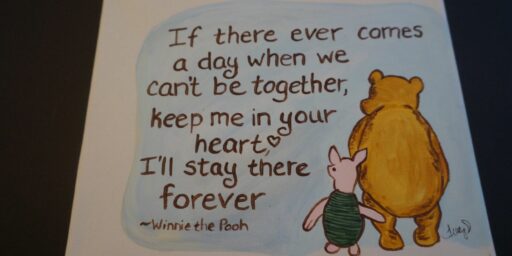No Software Patents?
Matthew Yglesias has been arguing against software patents lately:
Remember that, yes, stronger IP protections create larger financial incentives to innovate. But they also make it more expensive to innovate and ultimately reduce the level of competition. You can already copyright your software so people can’t just go and copy what you’ve done.
Adding a layer of patent protection on top of that makes life too difficult for programmers (who don’t know what they’re allowed to do and may not be able to afford to do it) and too comfortable for incumbents.
Actually, the primary problem with both patent and copyright protection for software is that the systems in place right now don’t really make sense for software at all. When I was in law school, I argued that Congress should create a separate intellectual property category for software altogether, because neither the patent nor copyright frameworks were appropriate or desirable. I still think that’s a pretty good idea. But barring that, it actually makes much more sense to eliminate copyright protection for software and simply use the existing patent framework. Given the nature of the industry, offering life + 70 years protection for software code just isn’t reasonable.






Why do you want to prevent independent creations of others?
I think copyright for software is fine, because, as a software programmer, I don’t have to care about what others are doing, I just write my code and sell it, distribute it.
In the case of software patents, I have to read not code but claims produced by others, understand them, and finally draw a line between what I can and cannot do.
I have read all the claims at the patent office, and stopped programming since then, and decided to fight software patents instead.
I agree with Alex, putting a copyright instead of a patent on software opens up a whole can of worms. Correct me if I’m wrong, but if you copyrighted your software code you could go after anyone who used that code (or a snippet of that code) in another program that is completely unrelated to the original program. Code is bound to be duplicated in different programs, there are only so many ways to code routine tasks. A patent would protect the general idea behind your software without putting restriction on what code other programmers could use.
It seems to me that copyrights should be left for completely unique pieces of work (like a book, movie script, website, etc.) and patents should be used for protecting your “big idea” from being hijacked by someone else.
Current copyright law is absurd in the extreme. All it does is guarantee that nothing will ever go into the public domain. It does not support the useful arts and sciences.
Software copyright is even more absurd in practice. Alex is right on this. Software is the only useful thing that gets copyright protection. Intellectual monopoly laws are a mess and have been hijacked to line the pockets of people who neither create nor develop the content an many cases. Time they were scrapped in favor of laws that don’t seek to maintain rent seeking.